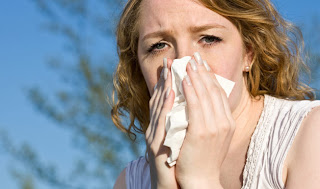Whether uncomfortable, embarrassing or just plain weird, there are some pretty funky things that our bodies do. Curious about the causes of such reactions as hiccups, goose bumps and eye twitches, we spoke with Eric Plasker, DC, author of The 100 Year Lifestyle, to get the real scoop. Read on to discover the common reasons for 14 peculiar bodily functions.
Yawns

If your body is low on oxygen, your mouth opens wide and tries to suck more in. Yawning is a way to regulate the amount of carbon dioxide and oxygen in your blood. Unfortunately, yawns are nearly impossible to stifle.
Eye Twitches

Serious eye twitches can be a symptom of neurological disorders, but often there is a more mundane explanation. Common causes for eye twitches include stress, lack of sleep, extended staring or eye strain. Before you get frantic, try reducing your stress level, cutting back on caffeine and catching up on sleep.
Itches

According to Dr. Plasker, our skin most often gets itchy because of dryness associated with the environment or over-washing—water and soap can strip skin of its natural oils, thus sapping moisture. Face or body lotion should be able to keep these types of itches under control; also look for body washes and soaps labeled “moisturizing.†If you still have itchy patches, you may be experiencing an allergic reaction to a chemical, plant, food, animal or drug. See an allergist if the itching is persistent.
Hiccups

If you’ve frequently got a case of the hiccups, try slowing down when you eat and drink, suggests Dr. Plasker. Doing either too quickly causes your stomach to swell; this irritates your diaphragm, which contracts and causes hiccups. You may also get hiccups in emotional situations or if your body experiences a sudden temperature change. In both of these cases, the hiccups are a result of a glitch in your nerve pathways, which is why a sudden scare—which might shake up and reset your nerves—can sometimes end an episode.
Goose Bumps

Those tiny bumps that cover your skin when you’re cold or scared are actually a defense mechanism. Goose bumps occur when the arrector pili, a tiny muscle that connects the hair follicle with skin, contracts and makes the hair stand on end. If you had more hair—like cavemen did—the upright hair would trap air to keep you warm or make you look bushier and therefore more threatening to predators.
Sneezes

Sneezes happen when your body is trying to expel an irritant from the nasal cavity. If you have allergies, pollen or pet dander is usually to blame. If you have a cold, your body makes mucus to trap the virus, and sneezing helps force it (and the sickness) out of your body. An over-the-counter allergy or cold medicine helps suppress your reaction to allergens or reduce mucus production, which should prevent sneezing fits.
Coughs

A cough is another mechanism your body uses to get rid of irritants. There are special cells along your air passage, says Dr. Plasker, that recognize irritants and force them out. Common colds, sinus infections and pneumonia all increase your body’s mucus production, which triggers coughing. Smoking and asthma also tend to irritate the cells. To help cut down on chronic coughing, exercise regularly and practice good posture to keep your air passage open.
Charley Horses

These sudden, super-painful muscle spasms can be blamed on several things, including dehydration or electrolyte imbalances—often from strenuous exercise. After a demanding workout or an extra-long run, sip a sports drink to keep your system running smoothly. If you experience this type of cramping, walk around to help relieve the pain.